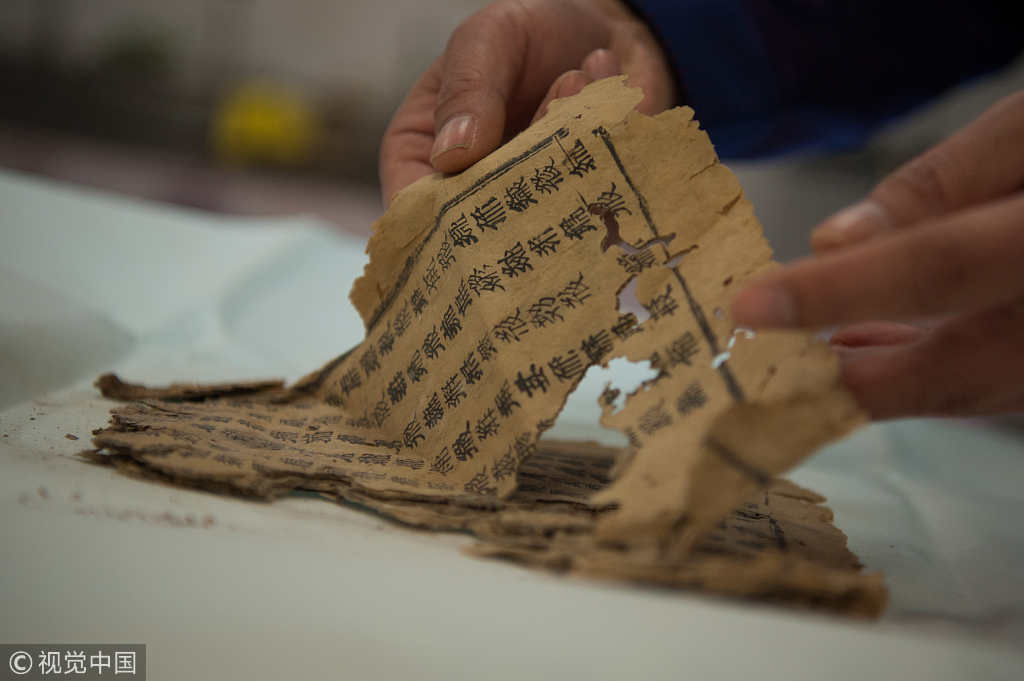Breathing new life into old books
Xinhua | Updated: 2019-03-12 00:21

"The moth-eaten or mouse-eaten books usually have many tiny holes which need to be mended," she said. "While those suffering deterioration and conglutination are even more fragile. A special paper should be pasted to it for reinforcement."
The restorative process usually includes disassembling the books, determining the specific problems and treating them accordingly. "The most important principle is to restore the book to its original form," said Geng.
"This work demands great patience. Sometimes it takes one day to restore just one or two pages," Jin said.
The oldest book Geng and Jin have repaired is "Zhou Li Zhu Shu" (Notes and Commentaries of the Rituals of the Zhou Dynasty). Faced with the feeble 380-year-old "patient," these two young "doctors" were skating on thin ice, working cautiously.
"Any minor mistake could cause irrevocable damage," Jin said.
Eventually, their hard work paid off. Under the guidance of a seasoned master, they learned the method of restoring severely deteriorated books and successfully renewed the two-volume book in just three months.
While insisting on traditional tools such as paste, a brush and tweezers, these restorers also use modern technology.
"A fiber testing machine can accurately tell a paper's composition while a thickness gauge can measure a page's thickness with an accuracy rate up to 0.01 mm, which is vital to select the appropriate kind of paper for mending," Geng said.
In late 2018, Geng repaired an ancient poetry anthology with the help of a pulp repairing machine. This machine was developed by the National Library of China and is beneficial in improving restoration efficiency, especially for severely moth-eaten works.
Although essential to preserving China's great literary works, the job poses some health risks.
"We often cough when opening dusty books. Sometimes the mold and dust would irritate our faces and some of us suffer from rhinitis," said Jin, adding that they always wear masks.
However, these obstacles cannot deter their passion.
They have found unexpected pleasures from this seemingly monotonous job. "It is like building a connection with the ancient people," Jin said, "For example, I once repaired a book showing how the ancients played games. It was so interesting!"
"What's more, the books' level of damage differs, so seemingly repetitive work actually contains nuanced variations from book to book," he added.
Sticking to a "slow" job in a fast-paced society makes him feel lucky. "The work forges my character and helps me maintain inner peace," said Jin, who believed that his three years in the career has helped him learn new skills and be more patience in his personal life.
In their spare time, the restorers go to different ancient book-related exhibitions. "We care about everything related to books," Jin said.
Each year they participate in a training held by the national ancient books protection center which has so far trained more than 9,000 people.
"I wish to continuously improve my ability to do the job well. It's an important way to protect ancient culture," Jin said proudly.
























